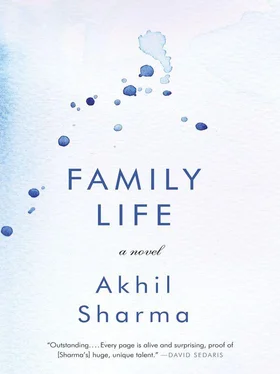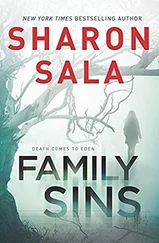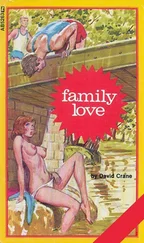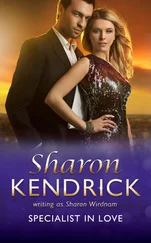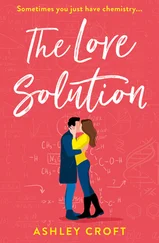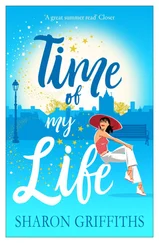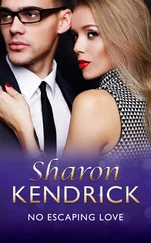The biography opens with Hemingway on a boat that is entering New York Harbor. The day is gray, and seagulls are soaring above him. He is returning to America from Paris and World War I. As I read about Hemingway having been to Spain and France, I was amazed. I couldn’t believe that an actual person had gotten to go to Spain and France. What was even more amazing was that this man had done it without being a doctor or an engineer. Till then I had thought that the only way to have a good life was to have one of these two professions. As I sat there reading, I got happier and happier. To have a life where one traveled, where one did what one wanted, seemed like being rich.
The light outside the window turned blue. Trees and nearby houses grew visible as if they were emerging out of water. The happiness was so intense it was as if my chest were being stretched.
It took several days to finish the biography. I read it mostly at the kitchen table. As I read, I began wanting to be a writer. I had written short stories in class before. Now, I thought about how wonderful it would be to be a writer and get attention and get to travel and not have to be a doctor or an engineer. As I sat there reading, my mother came in and out of the kitchen. She opened and closed the refrigerator. She prepared meals. Fantasizing about a life which was far away from her and Birju, I felt like I was doing something dishonest.
The same day that I finished the biography, I went to the library. I asked the librarian if there were more books on Hemingway. The woman, young, pregnant, asked if I wanted books about Hemingway or by him. I felt embarrassed saying that I did not want to read his works, that I only wanted to learn how to be a writer and get famous. “About him,” I murmured. She smiled and appeared pleased. I think she mistook my interest as me being scholarly. She led me to an aisle and showed me the library’s ten or twelve hardbacks on Hemingway. The biographer had mentioned that Hemingway’s style was very simple. I understood this to mean that if I became a writer, I wouldn’t have to be very good, that being merely acceptable would be sufficient for me to have a good life. I checked out all the books.
In my bedroom, I sat on the floor behind my bed so that if anybody came in I would not be immediately seen and so, in this way, I felt hidden. I began reading the books with a mixture of hope and embarrassment. I started with the thinnest book. It was a collection of essays. I began by reading the book’s introduction. Normally when I did things that appeared difficult, like connecting a VCR with a TV, I didn’t read the instructions, for I was afraid of failure, and reading the directions only made me more anxious that I would fail. With learning to write, I wanted to do everything that could possibly help.
Usually it embarrassed me to read slowly, as if the amount of time I was spending proved I was stupid. This time I read each paragraph carefully. If my mind wandered in the middle, I reread the paragraph, which happened several times a page. The first essay compared physical space in Hemingway’s only play, The Fifth Column , with physical space in the story “Hills Like White Elephants.” I didn’t know the play or the story. I didn’t understand the terms that the essay used. The sentences were like long weeds waving from the bottom of a muddy pond. I read the essay carefully, afraid, trying to hold what I could in my head.
The second essay made no sense, either. As I read it, I felt stupid for having thought I could be a writer. Still I kept reading. Now and then I learned something that struck me as practical. One essay said that Hemingway got away with writing plainly because he wrote about exotic things. If he were to write about ordinary things in an ordinary way, he would be boring. This remark was inserted in the middle of a paragraph. Reading it, I was shocked that something so important could be hidden like this. As long as I wrote about exotic things, I thought, I could then be a not very good writer and still be successful.
Another essay said that all of Hemingway’s protagonists are noble. If they were not, the lack of emotion in the prose would make them seem to be psychopaths. I thought that if I were to write, this was a clue as to what kind of characters I should write about. From an essay on ecology I learned that Hemingway often used repetition to create a physical impression, that in “Big Two-Hearted River” he described the weather as hot and then a little later he described the back of the character’s neck as hot. In that same essay, the author mentioned that physical description in Hemingway’s third person narratives tends to be at the start of paragraphs, while in first person narratives, physical description gets spread throughout the paragraph. Still another essay referred to how the dialogue tags “he said” and “she said” usually come at the end of a line of speech. Sometimes, though, when characters are very emotional, speech is preceded with “Henry said,” or “Cathy said,” and putting the label before the dialogue makes it feel stilted. This acts as a way of tamping down emotion and forces the reader to invest in trying to feel what the characters feel. Each of these things I noticed and put away. I wondered what it would be like to actually read Hemingway. Would I find it boring?
The second book I read was a slightly thicker collection of essays. Once again, I rarely understood what the writers were talking about. But now I knew a few more things. An essayist wrote that The Old Man and the Sea is full of factual inaccuracies, that it is impossible to carry miles of fishing line on one’s shoulder. Even though I hadn’t read the novel, I felt I knew the book from having read other essays. I read about Hemingway’s mistakes and felt that what probably matters in a book is its emotional truth and not whether small facts are accurate. Still another essayist mentioned how Hemingway, when he wanted to make his dialogue surprising, would take speech he had assigned to one character and give it to another, that some of the dialogue spoken by the Jewish character in The Sun Also Rises originally belonged to the protagonist of the novel. Giving the Jewish character this dialogue made him less one-dimensional.
Reading these books I had the feeling that I was being transformed. I felt like I was being connected to a world where stories were written and where they were studied. Feeling myself being connected, I had the sense that I was being taken away from my own life and brought into a world that was glamorous, where people did pleasurable things, where people did not worry all the time.
It took me several months to read the critical books. When I was done with them, I asked my mother to take me to the mall. The B. Dalton Bookseller was on the second floor. Mostly it sold magazines, calendars, greeting cards. In the front of the store was a wall of magazines, and there were tables that offered books by the foot. Beyond this, after shelves devoted to psychology and spirituality, was a section called Literature. I went to this and looked for Hemingway. There was a shelf and a half of paperbacks. My mother stood beside me as I pulled out different titles. Her watching me made me nervous. Because she often looked to criticize me, I felt she might think I was wasting money. The books were white with black drawings of matadors and of hills and small boats. I had decided to buy them instead of checking them out of the library because I felt that spending money would force me to read them. At the cash register, my mother watched as I paid with money I had received for various birthdays. I could feel her gaze.
That night, during dinner, my mother told my father that I had used my own money to buy books. “What an amazing boy,” she said. “It’s very good what you are doing, Ajay.” She said this seriously.
Читать дальше
